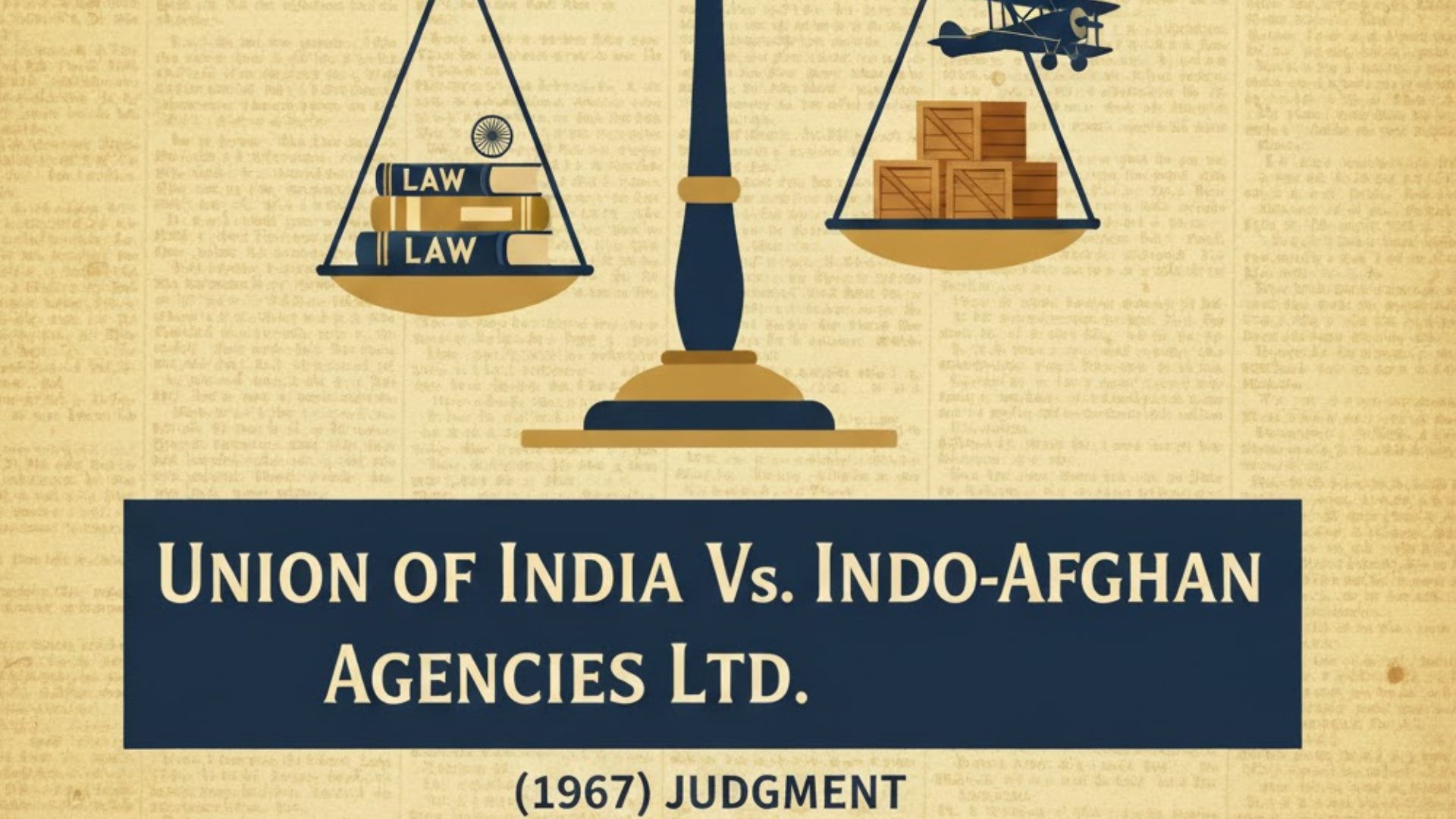
Union of India & Ors (Appellant) Vs Indo-Afghan Agencies Ltd. (1967)
(1967) 11 SC CK 0029
In The Supreme Court of India
Case No : Appeal (civil) 885 of 1967
Date of Decision : 22-11-1967
Bench : Full Bench
Hon'ble Judges : S. M. Sikri, J ; J. M. Shelat, J ; J. C. Shah, J
Final Decision : Dismissed
Citations : (1968) 2 SCR 366
[Judgment Source]
https://www.courtkutchehry.com/Judgement/Search/AdvancedV2?docid=282250
Name of the Court
Supreme Court of India
All Citations
(1968) 2 SCR 366
Facts of the Case
The Textile Commissioner’s Export Promotion Scheme (10 Oct 1962), extended to Afghanistan on 1 Jan 1963, promised import entitlement certificates equal to 100% of the f.o.b. value of exports of woollen goods. Indo‑Afghan Agencies exported goods worth ₹5,03,471.73 (Sept 1963) but received entitlement only for ₹1,99,459. After failed representations, the Punjab High Court on a writ under Article 226 set aside the denial and directed issuance of full entitlement absent a proper inquiry under cl.10 into alleged over‑invoicing. The Union appealed.
Law Points Raised
1) Do executive policy schemes create enforceable rights?
2) Promissory estoppel against the Government despite absence of a formal contract (s.115, Evidence Act).
3) Can the State rely on ‘executive necessity’ to resile from policy assurances?
4) Natural justice: necessity of notice and enquiry before reducing entitlement.
5) Scope of judicial review under Article 226 over discretionary trade policy decisions.
Acts / Provisions / Articles Referred
• Evidence Act, 1872 — Section 115 (estoppel)
• Imports & Exports (Control) Act, 1947 — Sections 3, 4
• Imports (Control) Order, 1955 — Para 3; Import Trade Control Policy (Appendix 23)
• Export Promotion Scheme for Woollen Textiles & Goods — Clauses 2, 4, 6, 7, 9, 10
• Constitution of India — Article 226; principles of natural justice
Judgements Referred
• Rederiaktiebolaget Amphitrite v. The King, [1921] 3 KB 500 (executive necessity — distinguished).
• Other precedents on enforceability of government schemes and estoppel — noted.
Obiter Dicta
Governmental representations that induce action cannot be withdrawn arbitrarily; fairness and good governance require adherence to promises unless overriding public interest is established.
Ratio Decidendi
The Scheme created enforceable rights. Promissory estoppel applies against the Government where parties alter their position on a governmental promise. Reduction of entitlement without due enquiry/hearing violates natural justice. ‘Executive necessity’ does not negate estoppel on these facts.
Final Ruling
Appeal dismissed. High Court’s direction upheld — exporter entitled to entitlement certificates for full f.o.b. value unless, after a lawful cl.10 enquiry, over‑invoicing is proved.
Summary
Seminal case on promissory estoppel against the State: exporters relying on an Export Promotion Scheme acquire enforceable rights; the Government must either honour its assurance or justify departure through a fair, reasoned process grounded in public interest. The Court rejected broad claims of executive necessity and enforced natural justice.
[Judgment Source]
https://www.courtkutchehry.com/Judgement/Search/AdvancedV2?docid=282250